|
Testimony of Congressman Greg
Walden before the House Natural Resources Committee Oversight
“Crisis of Confidence: The Political Influence of the Bush
Administration on Agency Science and Decision-Making”
July 31, 2007
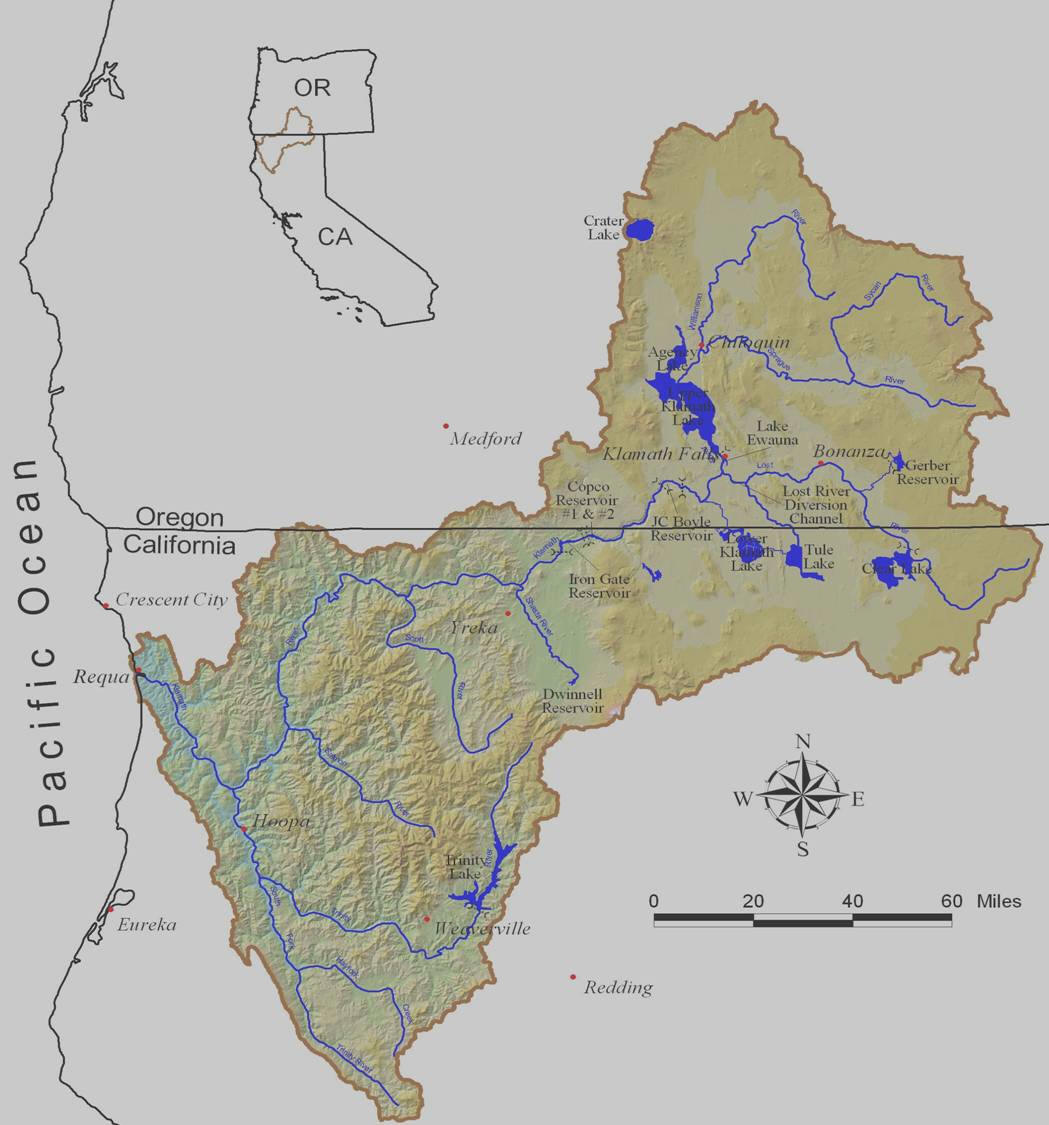
Klamath River Basin
|
Mr.
Chairman, members of the Committee. For the record, I am
Greg Walden and I represent the people of Oregon’s Second
District, including those in the Klamath Basin. Thank you
for letting me testify today and for letting me join you
on the dais afterward. During my eight-and-a-half years
in Congress, no set of issues has consumed my time and
energy more than those involving the complexities of the
Klamath Basin.
I want
to make three key points this morning:
First,
the decisions made affecting the fish, farmers and Tribes
in the Basin have been thoroughly and independently
evaluated by the Inspector General for the Department of
the Interior. The Inspector General’s findings more than
three years ago completely dismissed the allegation of
undue political influence. You each have a copy of that
response and I would unanimous consent that Mr. Devaney’s
March 1, 2004 response to Sen. John Kerry be made part of
the official record.
Second, the National
Academy of Sciences report four years ago rejected the
allegation that the Klamath Project was to blame for the
fish kill in 2002, just as it concluded that the agencies
did NOT use “junk science,” but did, accept, as they
wrote, “…a high risk of error in proposing actions that
the available evidence indicated to be of doubtful
utility.” I would unanimous consent that the Nation
Academy of Science, National Research Council Committee on
Endangered and Threatened Fishes in the Klamath Basin
final report be made a part of the official record. |
Third, the
Committee’s hearing today, to the extent it opens old wounds
and reignites past conflicts, runs the risk of aborting a
mediated settlement process that includes 26 parties in the
Basin who in the past would have been at each others throats
and for the last many months have been at each other’s tables
trying to find a Basin-wide solution.
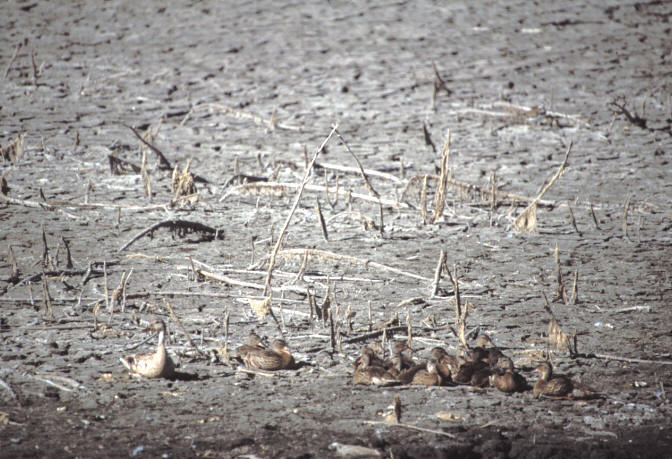
Over 400 species effected in the 2001 water shutoff |
As Craig Tucker and Leaf
Hillman from the Karuk Tribe told the Oregonian newspaper
on July 16, 2007, and I quote: “The real story on the
Klamath is not what politicians did four years ago, but
what Klamath basin residents and coastal fishermen are
doing today to solve the Klamath crisis.”
Mr. Chairman, just as you
called on the Department of Agriculture one month ago to
do everything possible to assist the farmers of 46
counties in West Virginia who are suffering from a lack of
water because of a drought, so too did I and my colleagues
in the Basin ask everyone from the President on down to do
whatever was within the scope of the law to help the
farmers in the Klamath Basin when the conditions in 2001
resulted in a loss of water to the Project for the first
time in nearly 100 years. |
I also
worked closely with your two predecessors to hold oversight
hearings on the problems to help identify what went wrong and
how we could fix it. We called on the Department of Interior
to seek a review by the National Academy of Sciences during a
field hearing at the fairgrounds in Klamath Falls.
|
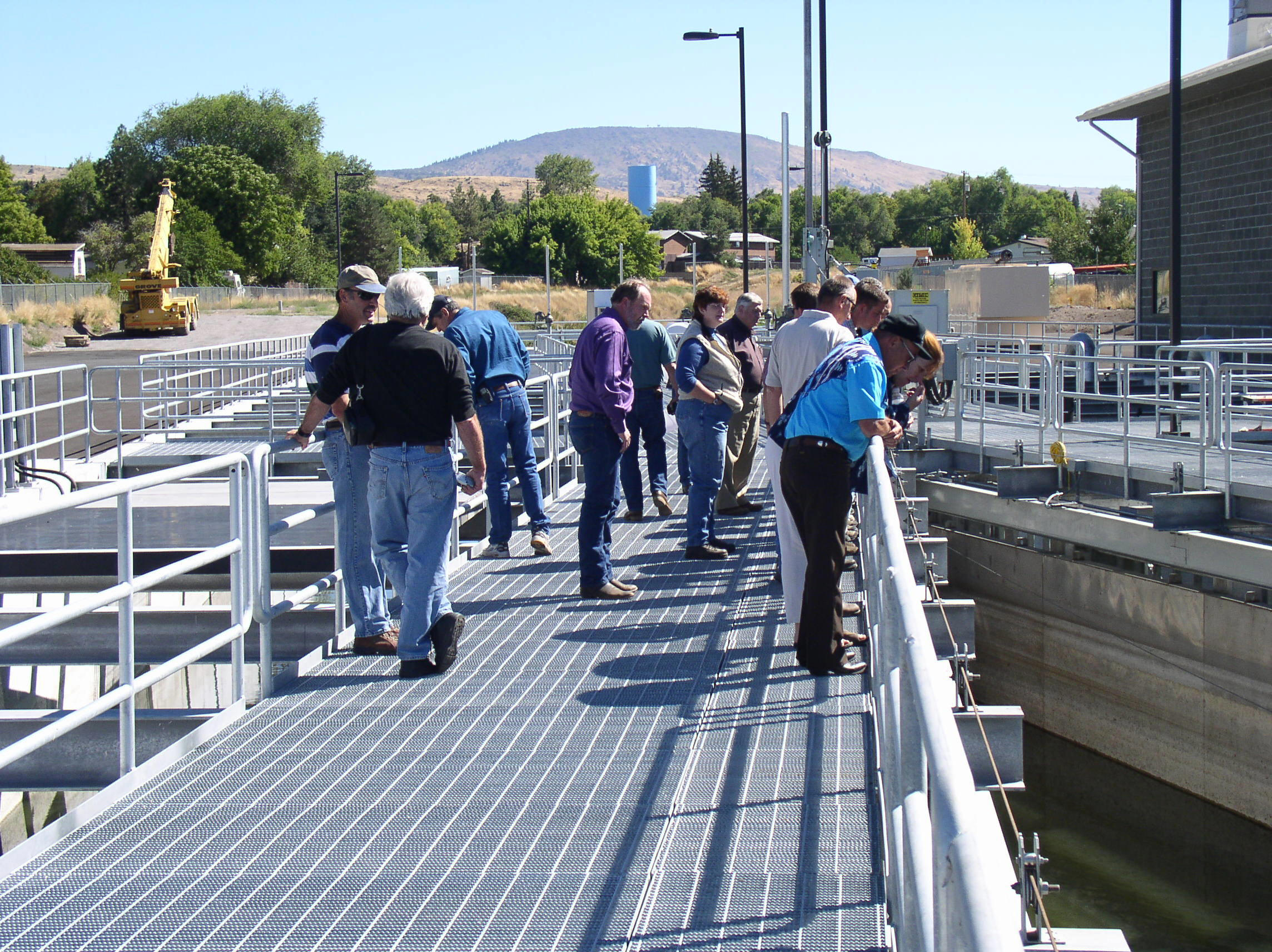
Screens on the Klamath Project “A” Canal |
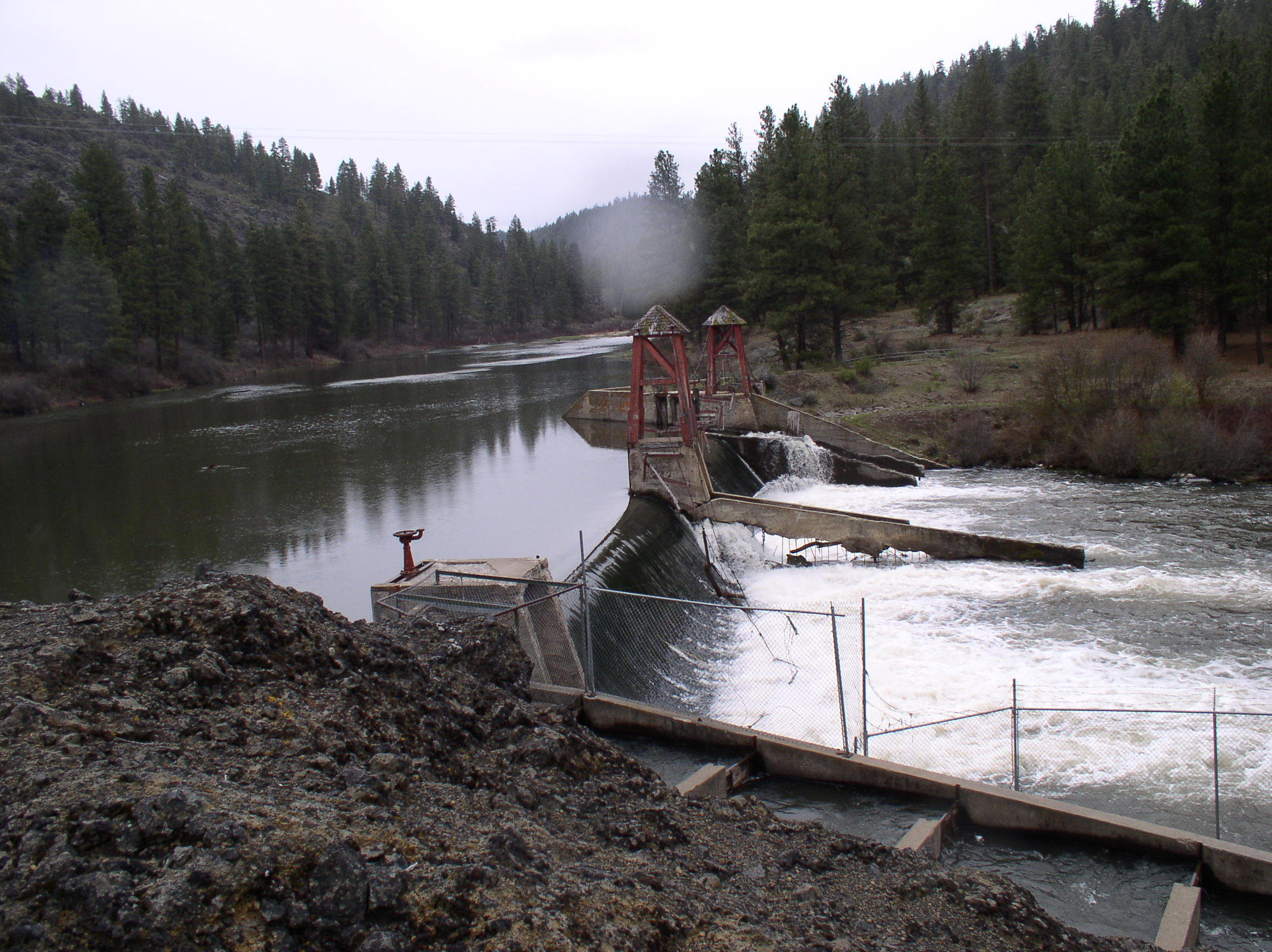
Chiloquin Dam |
We looked
at the problems, including a lack of fish screens on the A
Canal and fish passage at Chiloquin Dam. And this
Administration responded aggressively by pushing the agencies
to get results on both. Today, a multi-million dollar,
complex fish screen prevents sucker larva from ending up in
the irrigation system rather than staying in their natural
habitat. And within a year or two, Chiloquin Dam, which was
the main cause of the original listing will be gone, reopening
95% of the habitat up the Sprague River.
In
addition, the Basin has seen 370 partnership ecosystem
restoration projects, a 100-thousand acre water bank, and more
than $500 million dollars in Klamath Watershed habitat
restoration, water quality improvement and water conservation
efforts since 2002. Good things are happening in the Basin
like never before. It’s unfortunate that the Committee’s
value time is not spent encouraging more forward progress in
the Basin.
As for the
fish kill: I implore you to listen to the words of Professor
William Lewis who will testify later today, and who chaired
the Committee on Endangered and Threatened Fishes in the
Klamath River Basin, a committee of the National Research
Council, the premier, independent, scientific body in the
world:
“The Klamath Project is located over 150 miles upstream from
the mouth, and water flowing through the Klamath Project
accounts for only 10% of the total flow at the mouth; large
tributaries entering the river below the Klamath Project
contribute most of the flow at the mouth. Furthermore, the
Klamath Project releases water that is warm because it comes
from storage lakes rather than reaching the stream through
groundwater or surface runoff. The committee concluded that a
relatively small amount of warm water propagated over a
distance of 150 miles would not have made a critical
difference to the salmon that were staging for migration at
the mouth of the river.”
“The committee also examined previous conditions and found
that low flows similar to those of 2002 had occurred in
several years within the period of record without any
accompanying salmon mortality. The committee therefore
concluded that mortality was the result of an unusual
combination of conditions, probably including unusually low
flow plus the absence of a cool pulse of flow that even a
brief precipitation event might have provided.”
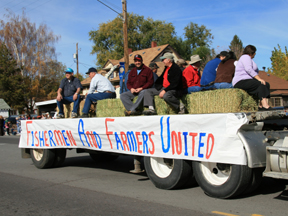
2006 Potato Festival in Merrill, Oregon, 250 miles from
the coast |
Now, to
my third and final point, the Klamath Basin Settlement
Group has worked in private for over the last several
years to reach common ground on complex issues. Their
goal is to recommend to Congress a comprehensive
settlement plan that will work for the fish and fishermen,
for the Tribes and for the farmers by the end of November
of this year.
While the talks are confidential, I know they
are complex, just as the problems are complicated. I wish
them well in their work and would encourage them to ignore
the political noise in Washington and stay focused on the
long-term solutions they seek. And I implore this
Committee and its staff to do the same. |
Prior sessions of Congress have helped those in need, farmers
and fishermen, when they’ve suffered losses. And prior
sessions of Congress have investigated what went wrong and
why. I implore this Committee to not go down the partisan
path of political provocation, but instead to rise above it
and provide support to those good citizens who are laboring to
find common ground in a Basin-wide settlement.
Let’s do what’s best of the fish, the farmers, the Tribes and
the fishermen. Let’s encourage them to find common ground,
not rub salt in old wounds when they are so close to an
historic agreement of enormous significance. |

